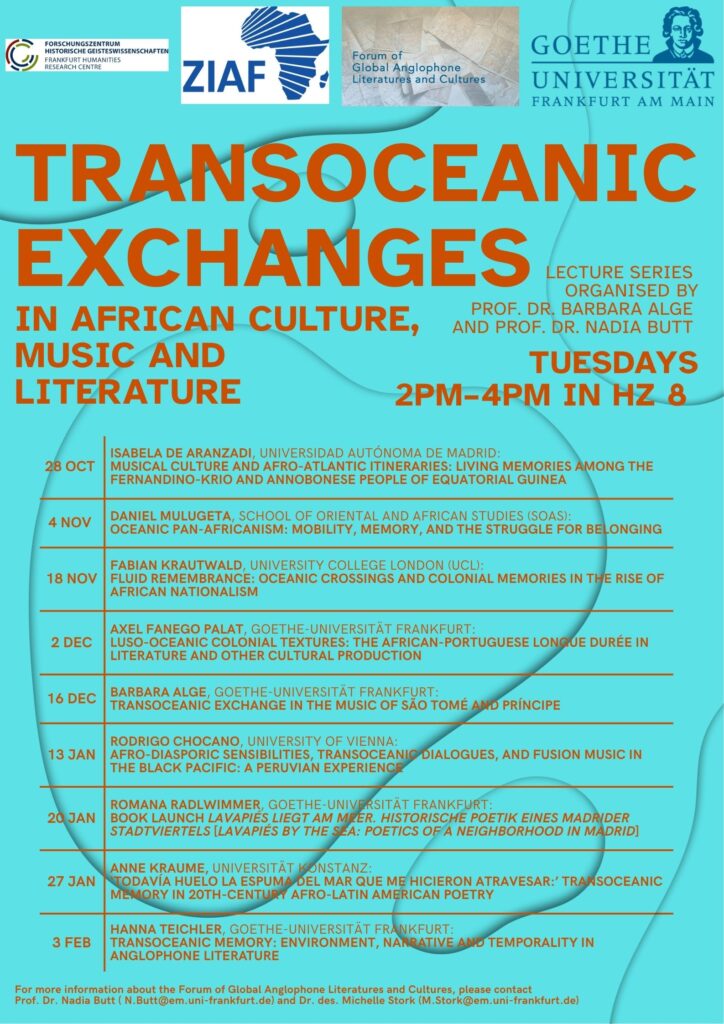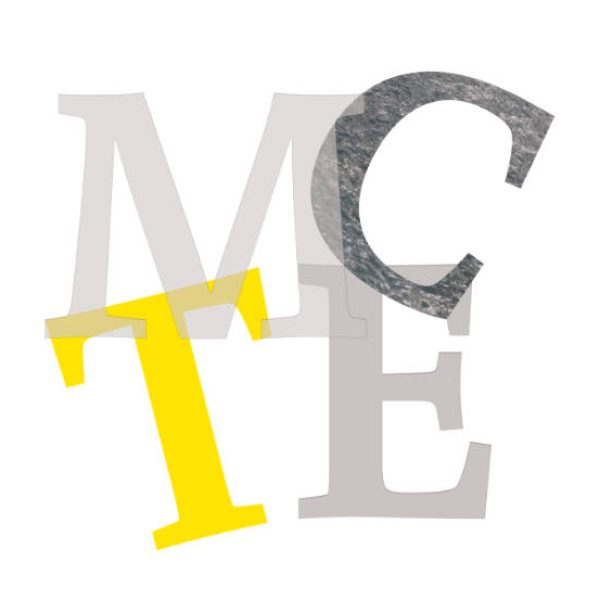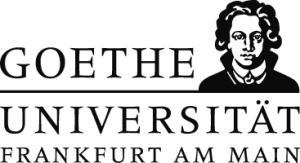Moving Cultures, Transcultural Encounters
Tuesday, 28 October 2025, 2pm-4pm CET
Campus Westend, Hörsaalzentrum, room HZ 8
Co-organised by Prof. Dr. Nadia Butt and Prof. Dr. Barbara Alge, funded by ZIAF.

The lecture series is part of the Forum of Global Anglophone Literatures and Cultures.
Isabela de Aranzadi (Universidad Autónoma de Madrid, Spain)
In Equatorial Guinea, two groups of black Africans have undergone a process of creolization: the Krio-Fernandino (since the early 19th century) and the Annobonese (since the early 16th century). Establishing the roots and routes of their musical cultures within a broader Afro-Atlantic context, through historical and ethnomusicological research, we try to shed light on the perceptions and meanings of their expressions (Cumbé, dadj’i, Kunkí, Ñánkue-or Bonkó- and Maringa), in relation to their own memory and their identity. The back to Africa populations and his descendants (at the origin of the formation of the Krio-Fernandino group), suffered processes involving both abolitionism and early colonialism. They shared with other black Atlantic subsystems deep levels cultural principles (Mintz and Price, 1993) and developed by their contact with Europeans in some sense a “double consciousness” (Gilroy, 1993). Using a transatlantic and transnational perspective, we analyse these Afro-Atlantic itineraries and Bioko’s connection with Sierra Leone, Jamaica, Cuba and other parts of Africa, in a historical colonial relationship with Spain, Great Britain and Portugal. Following the “rhizome metaphor” (Matory, 2001), the dialogue between Africa and its diaspora has generated new cultural expressions and discourses, which emerged during the process of identity construction. In the context we are dealing with, African music develops in a complex space of “circular” (Collins, 2007), or “reverse diaspora” (Bilby, 2011) relationships. These musical and ritual elements have been reinvented to be transformed, because of the kaleidoscopic nature of identity (Röschenthaler, 2011) in a particular construction of the past.
Bio Note:
Born in Equatorial Guinea. Professor of Ethnomusicology and African Music at the Universidad Autónoma de Madrid. Extraordinary Doctorate Award in Musicology. Sociologist, historian and pianist. She has done fieldwork in Equatorial Guinea, Cuba, Ghana and Sierra Leone, researching in musical Atlantic itineraries.
Her book Instrumentos musicales de las etnias de Guinea Ecuatorial (2009), has been translated into French in L’Harmattan (2019) for having common ethnic groups in Cameroon and Gabon. She has coordinated the recording of music in Equatorial Guinea for BBC- RADIO 3- WORLD ROUTES. Pianist and composer, she has participated in Jazz Festivals.


